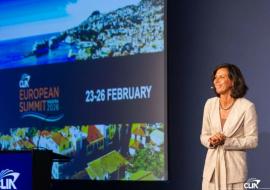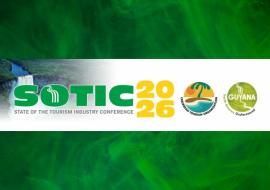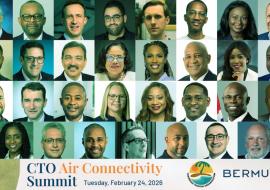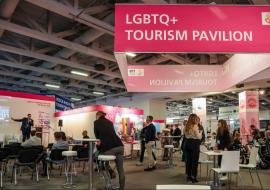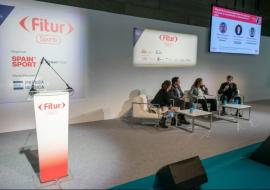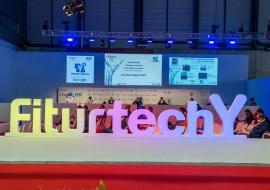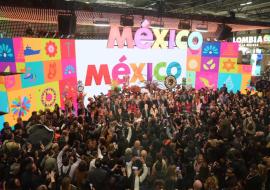WTM London 2025 Ends With Star Power, Sustainability Debates and the Rise of AI

World Travel Market London 2025 closed with a packed session featuring Oscar-nominated actor Richard E. Grant, who shared his passion for travel during a fireside chat with Sir Chris Bryant MP, the UK’s new minister of state for trade policy. Grant recalled filming in British stately homes, unusual meals—like bull’s testicles at a kibbutz—and a tense moment meeting the King of Eswatini after visa issues delayed a film crew. A lifelong traveler, he revealed that he now prefers solo trips with only hand luggage, exploring destinations without digital guidance because he finds the spontaneity “exciting and liberating.”
Overtourism and sustainability took center stage in the session “Rethinking Overtourism: Are we ready for real accountability?” Speakers from Skift, Intrepid Travel and national tourism boards stressed that protests in Southern Europe target the tourism model, not travelers. They warned of issues like unmanaged air and hotel capacity, seasonal concentration of visitors and promotional strategies lacking data-driven planning. A key figure revealed that only 20% of tourist spending stays in the destination, prompting calls for more collaboration to ensure that tourism revenues support local communities and cultures.
The debate extended to the aviation sector, where experts discussed the urgent need to scale sustainable aviation fuel (SAF). SAF currently costs three to five times more than fossil fuels, and industry representatives argued that government incentives are vital for a viable transition, just as wind energy once required public support. Companies such as Ponant and Zeero Group stressed that everyone in the supply chain must invest, highlighting a “race” to develop the first zero-emissions cruise ship, even as consumer willingness to pay extra for sustainability remains low.
Artificial intelligence dominated multiple sessions, raising questions about cost, ethics and the future of travel marketing. Experts highlighted the need for AI guardrails, covering everything from vendor approval to data privacy. In a provocative debate titled “The death of distribution?”, tech leaders disagreed on whether AI will become cheaper or remain costly due to big-tech competition. Another panel noted that 70% of travelers already use AI to plan trips, calling it “the new internet” and emphasizing that earned media and authentic content will matter more than ever in rankings and visibility.
In a session on destination strategy, Skift revealed that 68% of travelers start trip planning with an event or experience, not the destination. Singapore was presented as a case study, having boosted revenue and brand positioning through major concerts—like Taylor Swift—and Formula One events. Speakers encouraged destinations to adopt collaborative partnership models involving tourism boards, event organizers and private stakeholders to maintain momentum and attract global audiences.
The final day also celebrated industry newcomers and creativity. During Future You, travel students shared how persistence helped them secure competitive roles, while TrendFest showcased global cuisine, cultural performances from countries including St. Lucia, the Bahamas, Romania and Peru, and wellness experiences such as Mindful Mornings. Exhibitors presented innovative concepts like themed tea buses and destination crafts, reinforcing the message that WTM London 2025 is not only a business platform but a cultural window into the future of global tourism.







